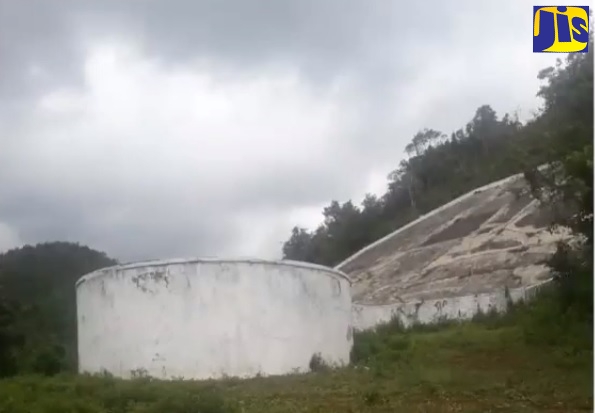
Local Gov’t Ministry Conducting Minor Water Supplies Audit
JIS NEWS Nov. 17, 2020 – The Ministry of Local Government and Rural Development is conducting an audit of minor water supplies islandwide, in furtherance of improvement measures outlined in the National Water Sector Policy and Implementation Plan 2019.
Two of the measures regard rehabilitation and maintenance of community catchment tanks, and strengthening the capacity of households and entities to utilise rainfall harvesting to augment water supply.
Speaking at the third Water Policy and Monitoring Branch Virtual Information Session, on November 12, Director of Roads and Minor Water Supplies in the Ministry, Barrington Clarke, shared details of the undertaking, for which a pilot was conducted in St. Ann in relation to the catchment tanks component.
He noted that there is a total of 274 catchment tanks islandwide that are under the purview of local authorities.
Manchester and St. Ann account for the largest number of tanks, with 64 and 62 respectively. Portland has 22, while Hanover has 16.
Mr. Clarke acknowledged that while Portland and Hanover receive the most rainfall annually, those parishes do not have the most catchment tanks.
“So [going] forward, as part of the Water Sector Policy, our intention is to have additional tanks constructed in these parishes and to have the non-functional tanks rehabilitated,” he informed.
The Director further pointed out that while some of the overall number of tanks are in a better condition than others, it is intended, over time, to have them all functioning optimally.
Mr. Clarke said the lack of catchment tanks in urban areas is not lost on Water Sector Policy stakeholders, adding that solutions are being explored.
“We find that [the areas] where we have catchment tanks are in deep remote and rural areas. Where we have our greater water challenges, which is in our urban and developed areas, we don’t have these systems in place. It is a contrast that we will have to integrate in how we go about our construction practices,” he stated.
Mr. Clarke further indicated that “we have to wholly acknowledge that climate change is an issue and we are having greater shortages of rainfall; as such, when the rain does fall, we capture and store some of that water for use”.
The Director pointed out that the smallest of the local authorities’ catchment tanks collects up to 15,000 gallons of water, with larger ones being able to hold more than 30,000 gallons.
He said harvested rainwater captured to augment regulated supplies and address the commodity’s shortage, can be implemented in areas with greater need.
Mr. Clarke also shared that the Local Government Ministry has been actively engaged in promoting rainwater harvesting.
“Section 61 of the Building Act, 2018 speaks to rainwater harvesting and the Ministry is actively reviewing the draft regulations that are to be submitted,” he further informed.
The Director said another aspect of the rainwater harvesting thrust is to have the process incorporated in all buildings owned and operated by municipal corporations.
“As a way forward, the intention is to have rainwater harvesting promoted as a condition of approval in the construction permit process,” he said.
Rainwater harvesting techniques have been incorporated in the recent construction of the Westmoreland Municipal Corporation, the St. Ann Drop-in Centre and the Manchester Infirmary.






